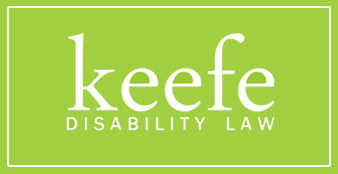 Your doctor prescribed a proton pump inhibitor—such as Nexium, Prevacid, or Prilosec—to treat your acid reflux. The medication was supposed to make you feel better, to reduce your heartburn, to treat damage to your esophagus, or to treat your ulcer. These were important health goals and the medication may have done its job. Unfortunately, the medication may have also caused significant side effects that you didn’t even know could occur.
Your doctor prescribed a proton pump inhibitor—such as Nexium, Prevacid, or Prilosec—to treat your acid reflux. The medication was supposed to make you feel better, to reduce your heartburn, to treat damage to your esophagus, or to treat your ulcer. These were important health goals and the medication may have done its job. Unfortunately, the medication may have also caused significant side effects that you didn’t even know could occur.
Dangerous Health Conditions That May Be Caused by Proton Pump Inhibitor Medications
Various studies have linked prescription proton pump inhibitors (PPIs) to various health conditions such as an increased risk of:
-
Heart problems. People with coronary artery disease who take PPIs have an increased chance of suffering heart failure and premature death, according to a January 2017 study published in PLOS One. Two years earlier, Stanford School of Medicine researchers reviewed the medical records of three million people taking PPIs and found that adults who take PPIs have a 20 percent increased risk of suffering a heart attack.
-
Kidney problems. Kidney damage and kidney failure may be linked to PPI use, according to a study conducted by Johns Hopkins University researchers that was published in the Journal of the American Medical Association (JAMA) during 2016. Other research finding that potentially deadly kidney problems could occur because of PPI use include a 2017 study published in Kidney International, a 2016 study in the Journal of the American Society of Nephrology, and a 2015 study published in CMAJ Open (the journal of the Canadian Medical Association).
-
Serious infections. PPI use is associated with a 50 percent increase in recurrent Clostridium difficile (C diff) infections, according to a study published in the September 2017 issue of World Journal of Gastroenterology. The study was based on information from more than 356,000 patients. Additional research needs to be done to determine if PPI use causes C diff infections.
-
Broken bones. Several different studies have found that PPI use is linked to lower bone density and a higher risk of osteoporosis—both of which can lead to bone fractures. The studies include a University of Maryland study completed in 2006 and a 2012 study published in BMJ. The research suggests that PPIs can interfere with a person’s ability to absorb calcium.
-
Stroke. In 2016, research was presented at an American Heart Association conference that indicated that people taking PPIs may have an increased risk of suffering ischemic strokes. While an association was made, further research needs to be done to determine if the increased risk is caused by PPI use.
-
Stomach cancer. In October 2017, the Journal Gut published research that found that PPI use could significantly increase the risk of suffering stomach cancer. The risk went up the longer the person took PPI medication.
-
Early death. In July 2017, a study was published in the BMJ Open. Researchers found that people taking PPIs had a 50 percent increased risk of dying over a five-year period when compared to patients taking other kinds of acid-reducing medications.
There is also conflicting information about whether PPIs cause dementia in adults.
Additionally, proton pump inhibitors are prescribed to young children—including infants—in the United States. Children, like adults, may suffer serious side effects and should be carefully monitored while on these medications.
The research described above is in the public domain and is available to the drugs’ manufacturers, to the Food and Drug Administration (FDA), and others. Since 2010, the FDA has required several changes to PPI drug labels to reflect some of the risks described above.
Proton Pump Inhibitor Mass Tort Cases
In 1990, the first proton pump inhibitor came on the market in the United States. Since then millions of Americans have taken these medications and many have suffered the side effects described above.
In many cases, patients took these medications without knowing the risks that they could suffer. The drug manufacturers may have known—or should have known—about the risks, however, and they may have failed to provide sufficient warnings about the risks. Alternatively, they may have negligently designed or manufactured the drugs. If you were hurt by a failure to warn of the potential side effects or by a negligently designed or manufactured medicine, then you may have the right to pursue a legal recovery.
Your injuries are unique and you deserve an individualized recovery. However, you are not alone. You may have the right to join with other people in Massachusetts, Rhode Island, or New Hampshire who have been hurt by the same medicine that hurt you. Together, you can join or pursue a mass tort case. You can share in the costs of discovery and legal representation while remaining in control of your own case and while fighting for the compensation you deserve based on your personal injuries.
Our mass tort lawyers are here to help you. Contact us today via this website or by phone to schedule a free, no-obligation consultation to learn more about your rights and potential recovery.
Are You Looking for a Mass Tort Attorney in Boston, MA?
If you have been injured by dangerous drugs you need to speak with an experienced mass torts lawyer as soon as possible. Please contact us online or call our Natick Office directly at 888.904.6847 to schedule your free consultation.
|
Related Links: |


